ADMINISTRATION. UNIT 2.
WHY DO PEOPLE WORK?
When you were a kid, what did you want to be when you grew up?
Superhero? Firefighter? Ballet dancer? Astronaut? Scientist? Share your answer with other people. Have a fun discussion about what you were excited about as a kid. Not sure?
Why do people work?
That’s an easy question.
- Money. People work to make money. They need money for food, for rent, and to have fun with their friends and family.
- Independence. Money isn’t the only reason to work. Working can also give you more independence and more control over your own life. When you work, you are learning new things, getting more skills, and making friends with people you meet through your job.
- Community. People work to be part of and contribute to their communities. This means that jobs exist not only for your benefit, but jobs also let you help others. For example, let’s say I have a job in an office delivering the mail. I’m helping the whole office save time and get stuff done.
VOCABULARY . ENGLISH AT WORK.
UNDERSTANDING JOB DESCRIPTIONS.
LISTENING.
Pre-Listening Exercise
Idioms
“nose around” = look for something private or hidden
“The kids sometimes nose around the house for Christmas gifts.”
“umpteen (also, umpteenth)” = a great number of
“I have umpteen presents to buy before Christmas Eve.“
Now, listen:
MEDIA THEN AND NOW
SOCIAL MEDIA.
Vocabulary.
Feednews feature avegage amount of time
upload screen time
1. Do you use social media daily? If so, what kind of social media? What's your average amount of srceen time per day?
2. Do you consider this is positive or negative?
3. What else could you do instead?
CONVERSATION ABOUT SOCIAL MEDIA.
4. What are the good things about social media? What about the negative ones?
5. Is the parents' perspective different from the children's? What do your parent's think about your use of social media?
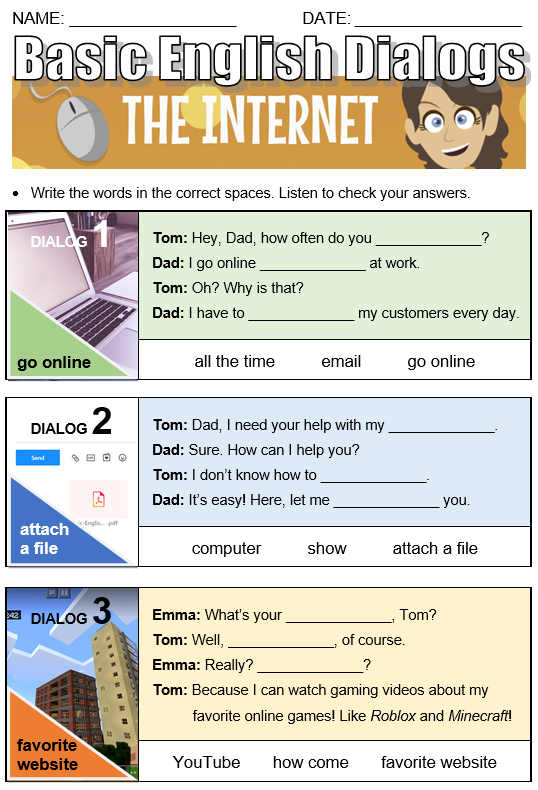
JOBS
READING
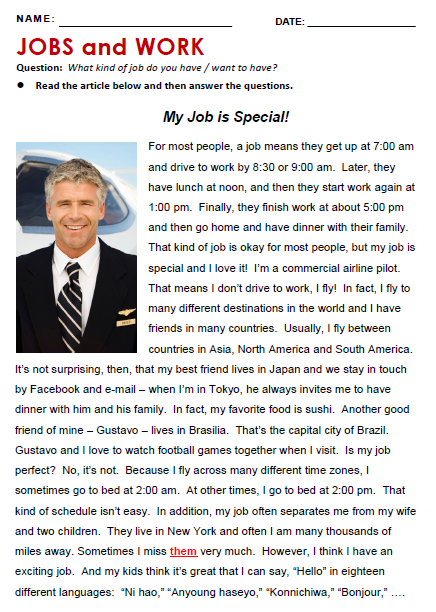
ANSWER
1. What does to have a job mean for most people?
2. Why is his job special?
3. What does he do?
4. What does he do when he is in Tokyo?
5. What does he do with Gustavo?
6. What are the negative things about his job?
7. Does he speak eighteen languages?
VOCABULARY. DESCRIBING A JOB
1. Copy in a list of adjectives you use to describe a job.
2. Read the text and copy de new words with the definition.
QUIZ. JOBS.
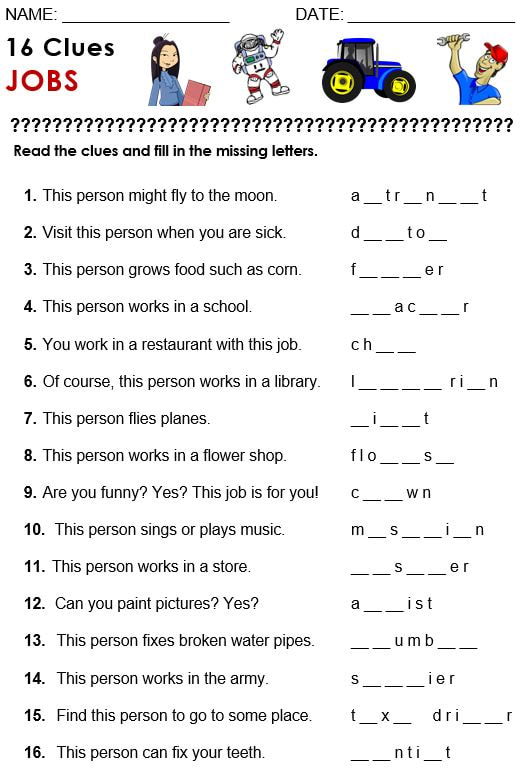
FROM: https://www.allthingstopics.com
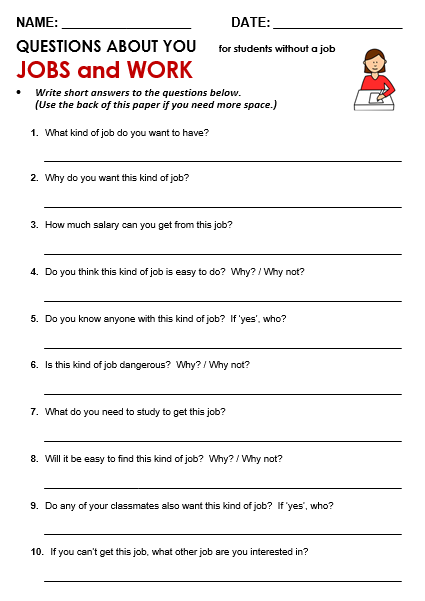
FROM: https://www.allthingstopics.com
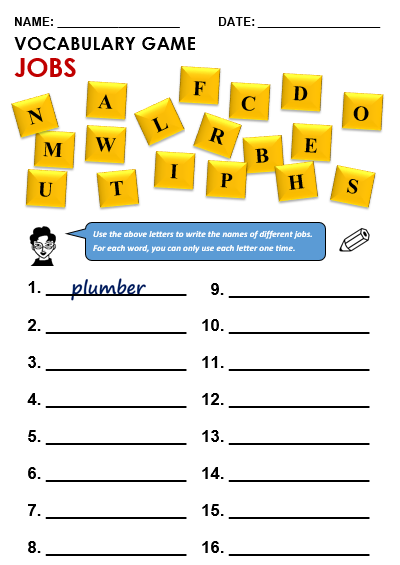
FROM: https://www.allthingstopics.com
EXTENSIVE READING.
1. Why nobody wants to be a trucker anymore?

2. Job vacancies that Spain struggles to fill.
/cloudfront-eu-central-1.images.arcpublishing.com/prisa/YT76AEQLOHENYCOB2OZ2M77SCU.jpg)
LISTENING: JOB INTERVIEW.
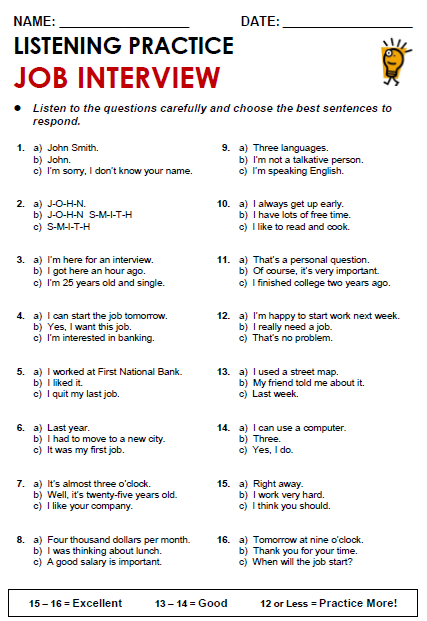
REVISION
1. TIME AND DATE
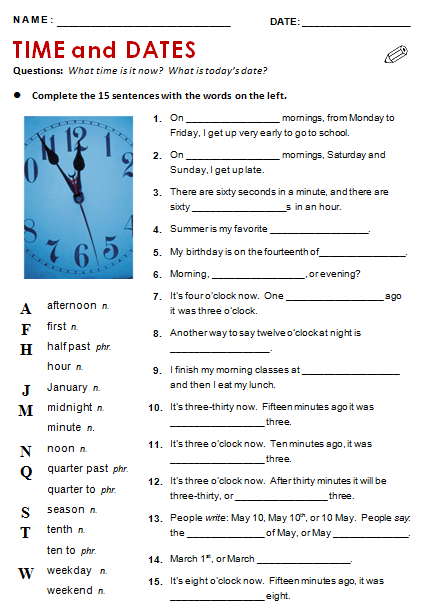
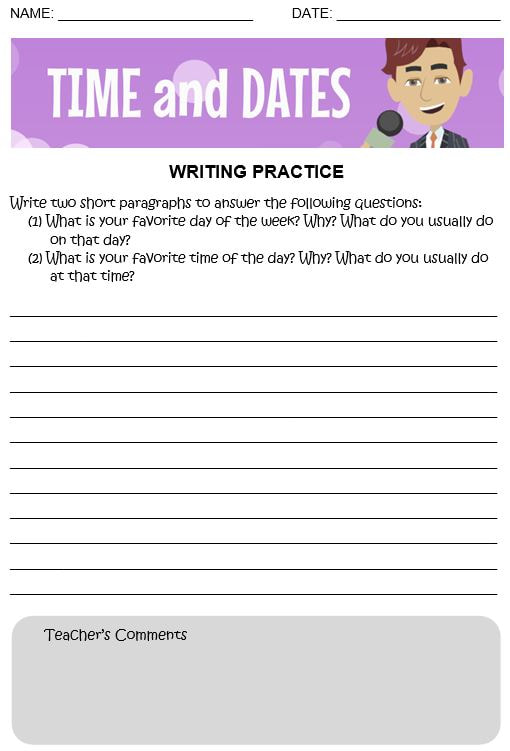
BUSINESS ENGLISH.
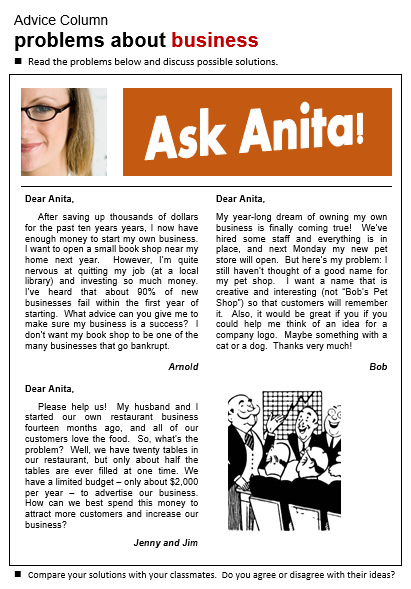
WRITING A BUSINESS PLAN.
1- What is a business plan? Write a definition.
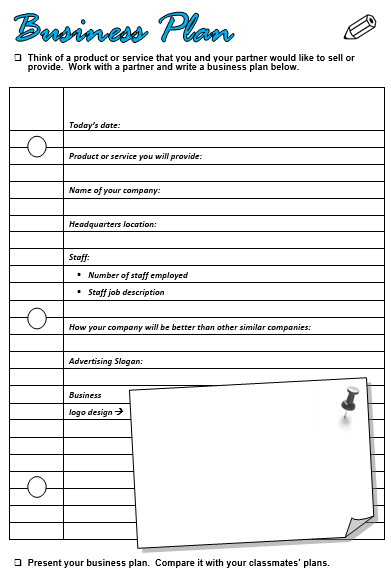
Page 1
Think
of a product or service that you and your partner would like to sell or
provide. Work with a partner and write a business plan below.
Page 2
Students are given $ 5,000 each to 'invest' in their classmates businesses. Which plans can attract the most money?
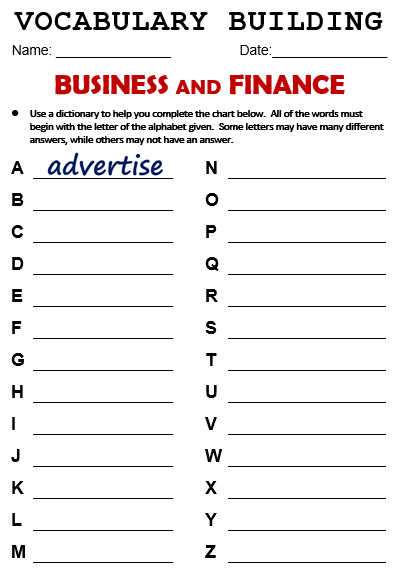
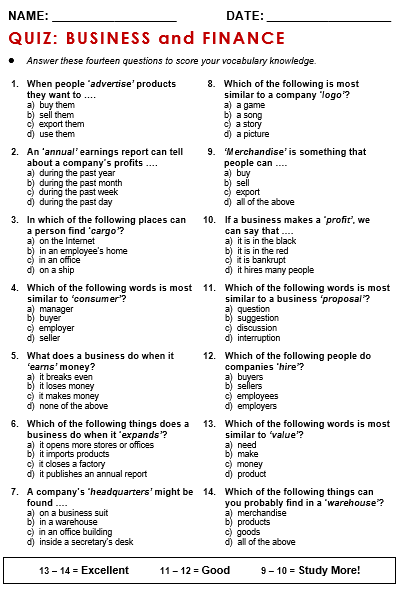
SAYING THE NUMBERS
CARDINAL AND ORDINAL NUMBERS.
Say large numbers.
BIG NUMBERS
READING. THE CHINESE NEW YEAR.
EXTRA PRACTICE. REVISION
13. A FEW, A LITTLE, MUCH, MANY...
WRITING
Dear Sir/Madam,
I would like to book a double room for the month of August 2002.
I need an air-conditioned room with bath and shower which faces the sea.
I should be grateful if you would confirm my booking as soon as possible.
Please give me an indication of your rates per night including full board.
Should you have no vacancies please could you give me the address of a suitable hotel in your area?
Yours faithfully,
Jennifer O'Brian
Confirming a reservation.
Dear Mrs O'Brian,
Thank you for your letter of 5th April 20..
We are pleased to confirm the accommodation you describe for the month of August 20..
We enclose a short description of how you reach our hotel. We look forward to your stay with us.
Yours sincerely,
Nick Webster
Reservations Manager
WATCHING
Who is Joseph Stiglitz? Where is he from?
What are his ideas about the economy?
What does he think about inequality?
What do you think of this....
IF YOU WORK HARD , THEN YOU 'LL GET RICH.
Is he optimistic? Why?
What are the three myths mentioned?
EXERCISE.
Watch the following video and tell the story.





Comments
Post a Comment